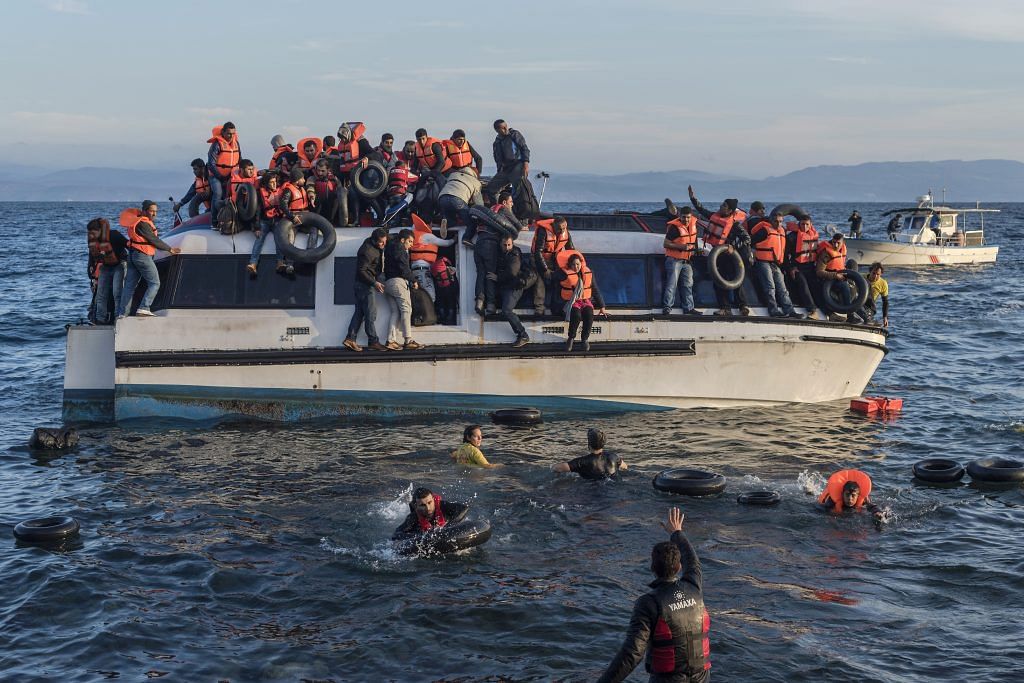Warehousing refugees to make Italy great again
How easily solvable would the refugee crisis be if potential migrants could just be warehoused in another country – a former colony perhaps? They’d have to face some abuse, yes. But the West would be ridden of its biggest fears which have allowed populist parties to flourish.
Warped, as it may be, this seems to be the logic driving Italy’s deal on migrants. “With the blessing of the European Union, Italy is off shoring its Mediterranean migration problem to a former colony, Libya. The goal is to prevent mostly sub-Saharan African migrants from leaving Libya’s shores for Europe. But the tactics could further destabilise Libya and condemn migrants to more misery,” notes this editorial in The New York Times.
“This is a dangerous gambit. It risks funnelling new money for arms to rival factions in Libya. And it puts Italy, and Europe, in the role of hiring as gatekeepers the very people who profit from extorting, starving, selling into slavery, torturing and raping migrants.”
“The sad fact is, though, that Europe is so determined to stop people from getting to Italy that it is abandoning human rights to quell European anti-migration sentiment,” it concludes.
Travel ban – a cynical, unceasing effort by an embattled president
It is fairly obvious that there wasn’t much that was “new” about Trump’s latest travel ban. In fact, debating how the new ban is different, better or worse than its predecessors is besides the point, notes this editorial.
“Its political function is the same — the latest gambit in a cynical, unceasing effort by an embattled president to inflame public fears and woo the xenophobes in his base.”
“All presidents must make hard choices about security, and all administrations have faced the intransigence or incompetence of foreign governments when it comes to fighting terrorism. But when the president has freely spouted his own longstanding animus toward adherents of one of the world’s major religions, his actions — which include, in addition to the travel ban, a pervasive hostility toward immigration — must be evaluated against that backdrop.”
Be wary of left-wing populism
The US is way too worried about Donald Trump, and not so much about Bernie Sanders. Obvious and insignificant – for most, the comparison would at best be random. But according to the “perennial lightning rod for controversy on both sides of the Atlantic”, former British prime minister Tony Blair, people need to be as worried by the left-wing populism peddled by Sanders and Labour leader Jeremy Corbyn in Britain as they are by Trump’s right-wing populism.
In an interview to Politico, calling out both America’s Democrats and Britain’s Labourites, Blair said, “You can go for what are very good-sounding things like, we’re going to abolish tuition fees, or we’re going to give you this for free, or that for free…In today’s world, and in particular, in the absence of a vigorous change-making centre, that’s very attractive. But I don’t think it’s the answer, and I’m not sure it would win an election. Maybe it would, but even if it did, it would worry me. Because in the end, I think a lot of these solutions aren’t really progressive. And they don’t correspond to what the problem of the modern world is.”
It’s all up to Merkel and Macron now
In the era of Donald Trump, much hinges on Europe to preserve the liberal international order. And to that extent, the German elections were as much about Europe as they were about Germany.
“German politics have never mattered more to the rest of the continent, but instead of obsessing about the rise of the far right, we need to study the shape of the coalition as it emerges,” writes Paul Mason in The Guardian.
“It is essential that Merkel and Emmanuel Macron find a common path towards what they have called a rekindling, or “renaissance”, of the European project. At the centre of this effort stands the need to reform eurozone governance.”
“So can the single currency’s two heavyweights, France and Germany, see eye to eye on how to proceed? Macron has called for the creation of a eurozone finance minister and budget. German scepticism towards some of the French ideas is well known. There are divergences among Germany’s mainstream political parties, and this is where Merkel’s coalition intentions – and what kind of domestic agreement she can reach – will be crucial.”
The gutsy, dreamy Kurds of Iraq
Iraqi Kurds celebrated their vote for a politically independent state with firecrackers and Kurdish flags. But they have many reasons to worry. The vote may come at a steep cost.
“It proved highly provocative for Turkey, Iran and Iraq, whose responses are likely to roil the region in the coming days, stirring the very turmoil that the United States hoped to avoid when it pressured the Kurds to call off the vote,” writes David Zucchino.
In fact, as the jubilant Kurds were voting in the referendum, Iran and Turkey conducted military exercises on the region’s borders, raising the threat of military intervention if the secession were to become a reality.
Moreover, even a convincing “yes” vote would not lead to immediate independence. Iraqi official have repeatedly called the referendum unconstitutional and vowed to ignore the results.
Yet, the spirit of the voters remained uncrushed. “When I voted, I didn’t think for one second of Turkey or Iran and their threats…I’m not worried about them,” said a 61-year old retiree.
